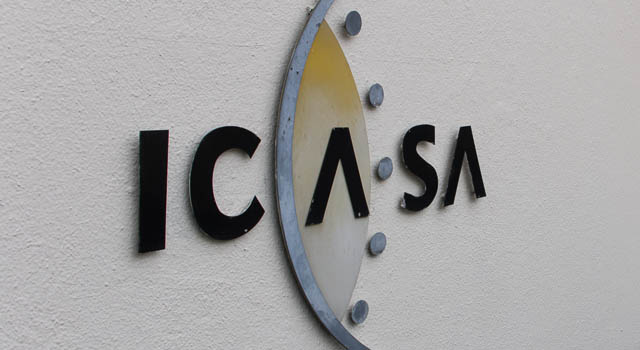
Icasa met secretly and unlawfully with Vodacom to discuss the operator’s proposed R7bn acquisition of Neotel, leading to a “reasonable suspicion of bias” against the communications regulator, the high court in Pretoria has found.
In a damning judgment, handed down on Friday, Judge DS Fourie has ordered that Icasa’s approval of the transfer of Neotel’s operating and spectrum licences to Vodacom be set aside in its entirety.
The application against Icasa had been brought to the high court by Telkom, MTN, Cell C and Internet Solutions.
TechCentral is in possession of the judgment, which shows Icasa blundered badly by failing to abide by the Electronic Communications Act when it decided that the transfer of Neotel’s licences be approved.
It failed in its duty by not considering the impact on competition of a Vodacom/Neotel tie-up and should not have approved the deal as it failed to meet black economic empowerment rules in the act.
The authority on Sunday declined to comment. “We are still studying the judgment and will have a position once a decision has been taken internally,” spokesman Paseka Maleka told TechCentral.
It’s the court’s finding regarding bias that looks set to attract the most criticism of the regulator.
The court found that a meeting between Icasa and Vodacom, which took place in mid-April 2015, was particularly problematic.
“In the absence of a proper explanation in this regard, I find it difficult not to conclude that this meeting was intended to deal with issues of substance,” the judgment reads.
There appears to be a contradiction between the answer given by Icasa and that of Neotel and Vodacom
“The meeting [was] also veiled in obscurity if one takes into account the following.
“First, there appears to be no minutes of this meeting…
“Second, if the intention was to only discuss timelines, why was a meeting necessary? The same purpose could have been achieved by correspondence, also copied to the other interested parties.
“Third, there appears to be a contradiction between the answer given by Icasa and that of Neotel and Vodacom. According to Icasa, a third meeting was cancelled, suggesting that only two meetings took place – in November 2014 and April 2015.
“However, according to Neotel and Vodacom, ‘other meetings or engagements’ also occurred which were concerned with attempts by Vodacom and Neotel to ensure that Icasa made a decision on the application before it expeditiously. No particulars are pleaded with regard to how many other meetings took place, when they were held and where the minutes are.”

If Telkom, one of the complainants, had not had access to a record of proceedings, it is “possible that [it] would not have been aware of these other meetings”, the judgment says.
“For an administrator to attend a private meeting with one of the parties under these circumstances is, in my view, not only improper, but also unlawful,” it reads.
“The public and interested parties will have more faith in the administrative process when justice is not only done, but also seen to be done. Having regard to these considerations, I am of the view that a reasonable, objective and informed person, having regard to these facts, would reasonably apprehend that Icasa would not have brought an impartial mind to bear on the application before it.
“I therefore conclude that it has been proven that Icasa, as the administrator who took the decision, is reasonably suspected of bias,” the judgment says.
Vodacom also does not escape unscathed in the judgment. “I have to point out that Vodacom played an active role in this regard by initiating the process giving rise to this finding,” it adds.
Asked for comment on the judgment, Byron Kennedy, executive head for media relations at Vodacom, said: “Vodacom held two meetings with Icasa. One was held at the behest of Icasa following its request for access to a confidential report compiled by Frontier Economics. The second meeting was requested by Vodacom to discuss progress on the change of control application following Vodacom’s acquisition of Neotel.”
Icasa, as the administrator who took the decision, is reasonably suspected of bias
The judgment contains other serious findings against Icasa.
Not least among these is that the authority’s decision to approve the transfer of the Neotel licences while Vodacom did not have 30% of its equity in the hands of historically disadvantaged groups was wrong in law. (Icasa had given Vodacom until an unspecified future date, to be determined, to meet the requirement.)
Also, Icasa failed to meet its statutory duty to “consider the issue of competition in order to promote the [objectives] of the Electronic Communications Act before a decision was taken”. The judgment shows that Icasa had wanted the Competition Commission alone to make a finding on the impact of the deal on competition in the sector.
Competition Tribunal hearings
Although the judgment appears to be bad news for Vodacom, the company likely had already been advised by its legal team that Icasa would lose the case.
Last November, it withdrew from hearings at the Competition Tribunal while it restructured the acquisition of Neotel.
Then, in early December, Vodacom said it would no longer acquire Neotel’s spectrum. Instead, Neotel would offer a “roaming agreement” to all the mobile network operators.
Industry insiders say Vodacom was forced to do this when it realised that Icasa would lose the high court challenge. It would also have struggled to get the deal past the Competition Tribunal, where it would have faced a mountain of opposition from rival operators. — © 2016 NewsCentral Media

